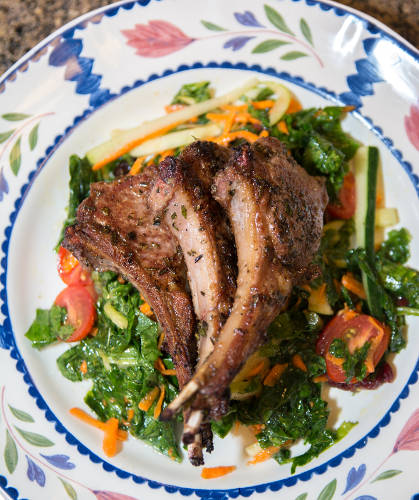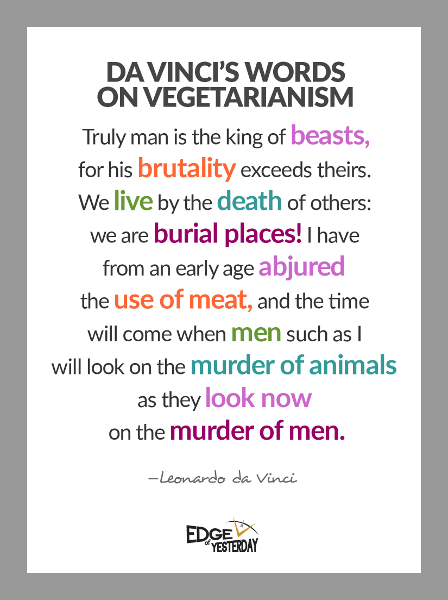Slow Cooking and Fast Eating: Food Science and Healthy Eating
Have you ever wondered what's behind what we eat every day? Food scientists specialize in understanding, modifying foods, and teaching others what’s in their food. Learn about how food science affects your day-to-day living.

I love food. I mean who doesn't? I grew up in a family that loves to cook and grow food. When I get older, I want to be the owner of my own restaurant and bakery. Food science is going to be an important part of my restaurant, but mainly focusing on nutrition. Using this I will make sure my restaurant serves food that is fresh, nutritious, tasty, and as healthy as possible.
What's Food Science Got to Do with It?
We should be thinking about food science every day. I mean, think about the public illness outbreaks at Chipotle in 2018 after almost 700 people became ill eating at the chain. They decided to use an app to help manage the production process to ensure food safety within the chain.
But food science is about much more than managing production. The overall job of a food scientist is to make sure food tastes good, lasts as long as possible without spoiling, and to make sure the food we eat is safe and healthy. Food scientists specialize in understanding food processes, modifying foods, and teaching others what's in their food.
Specifically, food science is the study of the physical, biological, and chemical makeup of food; and the concepts underlying food processing. There are five different fields of food science: food microbiology, food engineering and processing, food chemistry and biochemistry, nutrition and sensory analysis.
Where's the Health in That?
Let's dig into that a little deeper. Food scientists are involved with all aspects of food, from new food development and production, to testing packaging, nutrition, shelf-life, and sensory testing.
Food microbiology focuses on bacteria, molds, yeasts, and viruses. Food engineers work to make sure that processors used to turn raw ingredients into safe food also create food products that last a long time. Among other jobs, nutritionists sometimes associate some kinds of food processing--pasteurization, sterilization, and so on--with effects on foods' nutritional quality. A sensory scientist describes and evaluates flavors, textures, appearance and other segments of foods.
The overall job of a food scientist is to try and make food last as long as possible without it causing harm to you or having it taste awful, and to make sure the food we eat is safe and healthy.
So What Do Food Scientists Do--and Why Does It Matter?
Well, they are responsible, for example, for pumping ethylene oxide into apples to make them grow bigger, making soda taste like either root beer or bacon, and adding preservatives to soda while also lowering the calories.
Sounds pretty obscure, but these techniques affect our everyday health. As a future restaurant owner who is interested in slow food and not fast food, I want to make sure the food at my restaurant is tasty AND healthy. Fast food doesn't always offer the best options.
According to current food science, fast foods that are high in sodium (salt), and carbohydrates (including starch and sugars), and fried foods, may:
- Increase your risk of heart disease. Fats can raise blood cholesterol and result in cardiovascular disease.
- Harm memory. Fast foods are high in saturated fats that can have a negative impact on your brain function and memory.
- Weaken bones. A large amount of sodium can affect bone density.
Health Food's Ancient Roots
Leonardo da Vinci may have been the original food scientist. He sketched plants and herbs and analyzed them in his notebooks. His pen-and-ink drawing, "Fruit Vegetables and Other Studies", in the collection of the Bibliothèque de l'Institut de France, suggests that Leonardo was very engaged in learning and studying different fruits and vegetables. It is thought that Leonardo was a vegetarian in a society--Renaissance Italy--that would find that practice very weird.

Whether Leonardo in fact practiced vegetarianism or not, he had strong thoughts on the subject.

While Leonardo was not alone in studying the medicinal values of plants and herbs back in the day, he also recognized that, in man's unique attempts to dominate nature, we were more brutal than beasts, and we might come to recognize that such destruction laid the seeds of our own.
This recognition of man as part of, not over, our environment was one we might keep in mind today, in the face of our continuing abuse of the environment to our own detriment.
Calling out our destructive tendencies, even when it comes to respecting the harmony between people and animals, was one of many ways that the ultimate Renaissance man was considered ahead of his time.
Why Should We Care?
The choices we make about our food affect our health and also the world around us. In the news and around the planet, consumers today are more conscious about eating healthy, but it's not always easy. When grocery stores sell organic and healthy foods for such a high price it's hard to resist the unhealthy prepackaged foods that are cheaper.
My own restaurant and bakery, Mary's Palace, will provide another healthy alternative Understanding food science, and specifically, how to make sure any food we serve, Mary's Palace will be a traditional soul food restaurant with a twist. The twist: a signature international dish one day a week.
All of my food will be locally grown, fresh and homemade. The taste you will get from my food is like your grandmother's house on Thanksgiving. Being conscious of others' food lifestyles, we will offer vegetarian and vegan foods.
C'mon over and eat slow with us!
Want to Learn More?
- Esaak, Shelley. "Is It True That Leonardo Da Vinci Was a Vegetarian?" ThoughtCo, ThoughtCo, 10 Jul, 2019. https://www.thoughtco.com/was-leonardo-a-vegetarian-183277. Accessed on 12 Jul, 2019.
- Staff, Restaurant Business. "The 5 Fields of Food Science." , 14 Jan, 2006. https://www.restaurantbusinessonline.com/5-fields-food-science. Accessed on 23 Apr, 2019.
- Stoddard, Grant. "20 Negative Effects of Fast Food on Your Body" Eat This Not That, 16 Oct, 2018. https://www.eatthis.com/what-happens-to-your-body-when-you-eat-fast-food/. Accessed on 20 Mar, 2019.
- "Thermal Processing of Food" Safefood 360, 19 Dec, 2018. http://safefood360.com/free-resources/whitepapers/preview/thermal-processing-of-food. Accessed on 8 May, 2019.